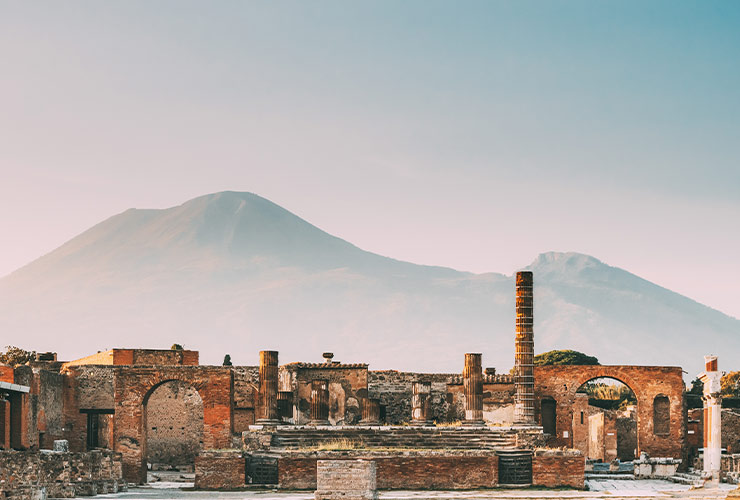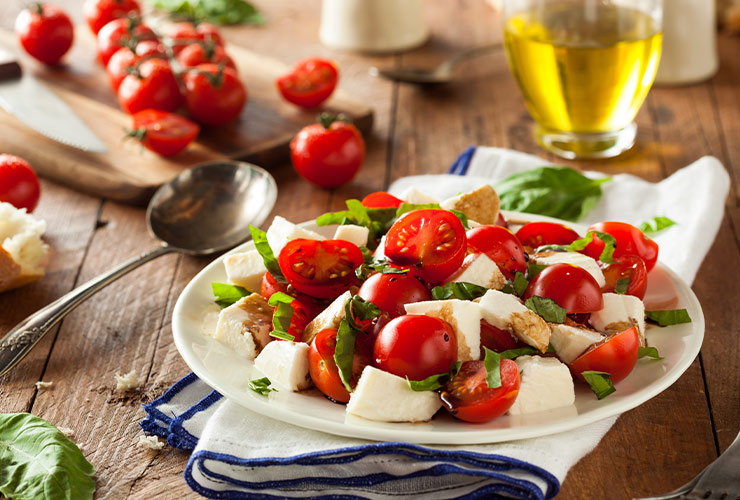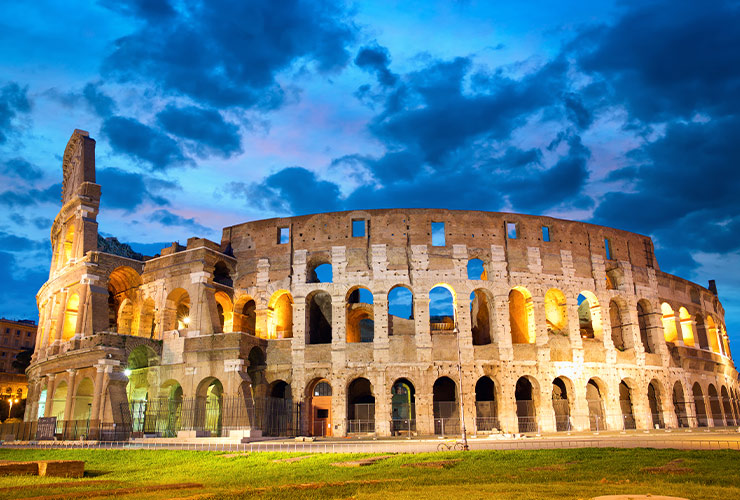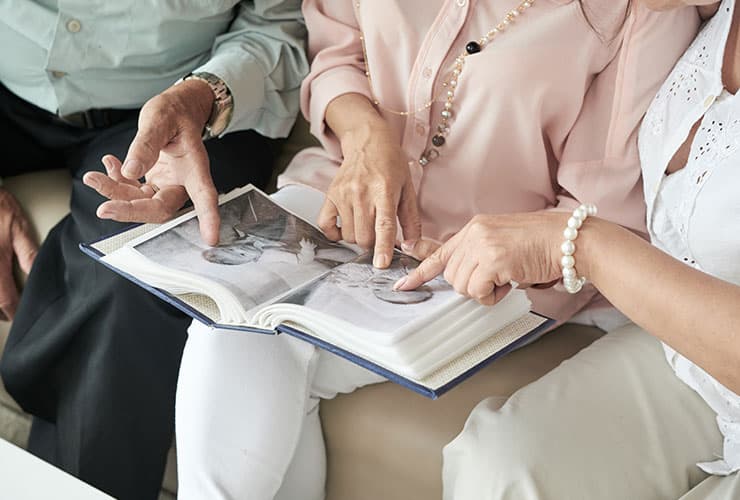You do say happy birthday in Italian with more than just one expression. Even if today’s not my birthday, I’m Italian. And Italian people really do love celebrating anniversaries and special occasions, so that’s why you could find it useful to know the different ways to make your best wishes for someone’s birthday.
How Do You Say Happy Birthday In Italian?
Buon compleanno is the one expression you can use to wish your Italian friend, partner or relatives a literal happy birthday. It’s considered the official way, although you will also hear Tanti auguri as another popular greeting. Tantissimi auguri is the superlative form, while just Auguri is more of a fast one used on various occasions besides birthdays. If you really want to sound like a local, longer phrases such as Ti auguro un felice compleanno! or Cento di questi giorni! are the perfect way to show off a little bit to impress your friends!
So, let’s dive in and see how you can wish a happy birthday in Italian.
8 Common Ways To Wish Happy Birthday In Italian
Here’s a list of all the ways of saying happy birthday in Italian.
Let’s find out together each of them in detail:
1. Buon Compleanno

Literally meaning “good birthday”, it’s the most direct way to express your best wishes. No matter how the occasion is celebrated, Italians mainly wish a happy birthday using buon compleanno!
If you learn this expression, you will surely know an excellent way to impress your Italian friends.
Example:
Buon compleanno, Emma! Hai ricevuto il mio regalo?
Happy birthday, Emma! Did you get my present for you?
2. Auguri
Auguri is a very general way of wishing someone a happy birthday in Italian. It basically means you’re wishing somebody happiness. Whether you’re celebrating Christmas, Easter, New Year’s Eve, or your friend is starting a new job or getting married, auguri is definitely the primary choice.
Knowing a versatile word helps you guys that are learning Italian. You can use it on various special occasions, from a couple that’s going to have a baby to someone’s graduation day.
Furthermore, you can form another popular expression by adding the augmentative suffix -oni at the end of the word to send your big wishes. Auguroni!
Examples:
Auguri, Enzo! Quanti anni compi?
Happy birthday, Enzo? How old are you today?
Auguroni, zio Tom! Stai invecchiando!
Happy birthday, Uncle Tom! You’re getting old!
3. Tanti auguri

As you’ve seen, tanti auguri does not contain the word compleanno. So, it’s not only for birthdays and it can be considered a bonus card when it comes to Italian greetings.
Fun fact: auguri is the plural form of augurio, which literally means omen in Italian. Coming from the ancient Latin language, it originally meant prophecy or divination.
Tanti auguri translates as best wishes. It emphasizes your expression of goodwill for somebody’s birthday by the word tanti, which actually means many.
So far, it’s probably the most popular way to send someone birthday wishes. You should just remember the context, but it will be enough to convey why you are greeting the birthday boy or girl.
Example:
Tanti auguri, Stella! Non vedo l’ora di venire alla tua festa!
Happy birthday, Stella! Can’t wait to come over to your party!
4. Tantissimi auguri
Tantissimi is just the superlative form of tanti. It means that you really have many many – and possibly, your best – wishes for your friends or relatives.
Example:
Ciao Lara, oggi è il tuo compleanno? Tantissimi auguri!
Hi Lara, is it your birthday today? Happy birthday!
5. Tanti cari auguri
When you want to shower someone in kindness you could put a little extra word between tanti and auguri. So, you can address your many dear wishes every time they’re truly heartfelt.
Example:
Ciao nonna, tanti cari auguri per il tuo compleanno.
Hello granma, many dear wishes for your birthday.
6. Tanti auguri di buon compleanno

This is a combination of the two most common expressions we’ve seen already before. If you’re writing a birthday card or a letter, buon compleanno tends to be the primary choice. The whole phrase tanti auguri di buon compleanno is surely the best way when written on paper.
Otherwise, Italians are more likely to use this expression in formal contexts.
Example:
Caro papà, tanti auguri di buon compleanno!
Dear dad, best wishes for a happy birthday!
7. Ti auguro un felice compleanno
This expression tends to be more formal, and it’s often paired with some other phrases to convey your most sincere wishes. You can check the conjugation of the verb augurare (to wish) and then give a look at the right indirect object pronoun to use.
Then, ti auguro un felice compleanno translates literally as I wish you a happy birthday. If you want to bring someone else’s wishes, you should pay attention to the correct syntax of the phrase. And even if you want to wish a happy birthday to more than one person, that is what to do.
Examples:
Vi auguriamo un buon compleanno.
We wish you a happy birthday.
Mio padre le augura un buon compleanno, signora.
My father wishes you a happy birthday, ma’am.
8. Cento di questi giorni!
You will sound more like a native if you use the expression cento di questi giorni, which literally means one hundred of these days.
Even though it does not explicitly mention birthdays, it’s often considered a kind way to send your best wishes to the birthday boy or girl. Probably, it could be a bit confusing as you’re wishing for just one hundred days.
But actually, you’re referring to one hundred birthdays more. Make it special, so it will be relieved next year!
Examples:
Buon compleanno, Brian. Cento di questi giorni!
Happy birthday, Brian. One hundred days like this!
How To Answer To Happy Birthday In Italian

You can simply answer a very warm grazie to someone that has just wished you a happy birthday.
And when it comes to saying thank you in Italian, you’re definitely spoilt for choice. Just check here which one is more suitable for you!
Italian Birthday Traditions
Although Italian people usually celebrate birthdays in a similar way to many other countries in the world, there are some quirks when it comes to Italian birthday parties.
So, let’s see some Italian birthday traditions together!
The Most Important Birthday
Unlike American teenagers who fondly wait for their ‘super sweet sixteen’, Italians officially hit adulthood when they turn eighteen.
So that’s the reason why the biggest parties always come to celebrate the so-called maturità (coming of age). The style and the size of the party depend on the family and the person, but they tend to be as great as possible.
The Birthday Person Takes Care of the Party
Chi compie gli anni, paga – or the one who is celebrating birthday pays. In Italy it’s actually an unwritten rule whenever someone is throwing a party for their birthday. Probably it will sound weird to you that the party’s not a friends’ responsibility to take care of.
But you should know that food is a huge part of Italian culture. Sharing high-quality cooked stuff and drinks is a very important social activity. It conveys the pleasure of spending time together with people you love. When somebody celebrates his or her birthday, they show appreciation for their guests by offering them a meal.
Party is usually held at the birthday person’s house where everything will be prepared for the occasion. You could see some decorations all along the walls, streamers and balloons especially if it’s a children’s birthday party. The music could be loud and the food can be served as finger-food, a buffet, or a meal with more than one course.
Even though not that uncommon, having dinner outside would usually be with only close friends and relatives. You might be taken out by the birthday person to a restaurant, to the bar, or also to the cinema. Activities could be different, but you will always find a birthday cake at the end of the night. Desserts are usually Italian delicatessens, like the ones you can see listed in our article.
Singing Tanti Auguri a te!

Although the words are obviously different, the tune of the famous Happy Birthday song in Italian is identical to the English one. Guests always sing it when the cake is out and the birthday boy/girl has to blow their candles off: it’s definitely a lasting tradition! The lyrics aren’t quite a direct translation, but you can listen to it here and follow the same melody.
It goes like this: Tanti auguri a te, tanti auguri a te, tanti auguri a (sing name of the person), tanti auguri a te!
As in many other countries, when the song is over the birthday boy or girl needs to blow the candles on the cake and make a birthday wish. It is believed that you cannot tell it to anyone or it won’t come true!
Guests Must Bring Gifts
Bringing gifts is not exactly the rule, but still, it’s a spread way to show a matched affection to the birthday person that took care of the party. Presents are wrapped with great care and often opened before the party ends, so the host can thank everyone properly. And here’s where you can learn to understand when someone thanks you in Italian.
Even if the birthday boy or girl tells you not to bring anything, it’s always better not to come without a little gift for the host. No one would go empty-handed on any other special occasion! Birthdays are the perfect situations to demonstrate your love for the friend or the relative who’s throwing the party.
It’s also common to match your gift with a funny birthday card where you should write down a few words to wish a great birthday to the birthday boy or girl.
Besides, don’t forget that opening the presents in front of everyone at the party could result in embarrassing scenes! So you may want to buy something not too personal or to be ashamed of when shown in public.
When To Say Buon Compleanno
Wishing a happy birthday to somebody one or a few days in advance is considered to bring bad luck to the birthday person. Some people might also think it’s a bit rude.
So, be always sure to know exactly the date of your Italian friends’ birthday!
On the other hand, saying happy birthday in Italian when you’re a little late is easier to fix.
How?
You can just wish a happy belated birthday: Tanti auguri in ritardo!
Italian Birthday glossary

Finally, below are some useful Italian words and expressions concerning birthdays that you can easily use on those special occasions.
| Italian | English |
| Torta di compleanno | Birthday cake |
| Candeline | Small candles |
| Festa di compleanno | Birthday party |
| Regalo di compleanno | Birthday gift / present |
| Invitati | Guests |
| Festeggiato / Festeggiata | Birthday boy / Birthday girl |
| Invito | Party invitation |
| Palloncini | Balloons |
| Brindisi di compleanno | Birthday toast |
Biglietto di auguri | Birthday card |
Festeggiare | To celebrate |
Now that you learned how to wish a happy birthday in Italian, you’re officially ready to attend a real Italian birthday party. Or even to throw your own one!





























































